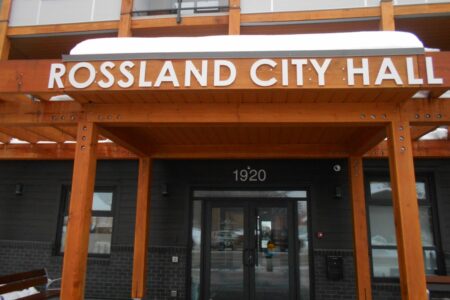Editorial Opinion: Ruminations on voting, party platforms, promises and so on
Mainstream media coverage to date of the federal election campaign has led CBC pundit Neil Macdonald to declare, “I can’t get little enough of it.” No wonder. Irrelevant distractions, insults, inaccurate accusations, fake videos, false social media memes, a flood of promises that few voters put much faith in anymore, and general nastiness. Little surprise that so many people turn away in disgust, and fail to vote.
But we’re at a critical juncture, and failing or refusing to vote will not help at all. Neither will destroying a ballot, staging a public tantrum at the voting booth, or starting a new political party with a membership of two, or a hundred, or even five hundred. What will help? Voting – AFTER doing your research. It’s worth the trouble, to get the best government available.
I urge people to judge the parties primarily by analyzing critically what they put forward on their websites and platforms, not just by what other parties say about them, or how good-looking, charming, or forceful and well-spoken a candidate may be. Here I provide links to the platforms I could find, and a link to a CBC summary and analysis – and a caution that the CBC summary leaves out some things of importance.
Below this list of links, I provide a few comments of my own on the parties and what they seem (to me) to stand for, and on their platforms as presented.
Green Party of Canada– an 88-page document detailing the party’s intentions; definitely worth reading, for all voters:
https://www.greenparty.ca/sites/default/files/platform_2019_en_web_-_update_sep17.pdf
Liberal Party of Canada—
https://2019.liberal.ca/our-platform/
The PDF document is an 85-page statement of promises, focusing heavily on economic benefits to “the middle class” and growing the economy. The climate change area includes continuing carbon pricing (which is, in fact, recognized as one of the most effective ways currently available to lower emissions). It also includes a promise to “appoint a group of scientists, economists, and experts to recommend the best path to get to net-zero.” One only wonders why they didn’t do this the moment they declared that there is a climate emergency, instead of investing in petroleum-industry infrastructure designed to expand tar sands production and emissions. The platform mentions many different ambitions – everyone should read it and contemplate it.
New Democratic Party of Canada (NDP): the link below brings readers to a 108-page platform document that is much more detailed than the topic headings outlined on the party’s website – another platform that everyone should read:
https://action.ndp.ca/page/-/2019/Q2/2019-06-19_Commitments-Doc_EN.pdf
Conservative Party of Canada:
I was unable to find a platform document, which I understand is expected to be released on October 11 or so — a mere ten days before election day — but I did locate a 2018 “Policy Declaration” (“pending approval by National Council”) at:
https://cpcassets.conservative.ca/wp-content/uploads/2019/06/03154936/00477c06063465c.pdf
This 61-page document sets out the party’s vision and intentions more clearly than the vague advertising-slogan statements found on its website, such as: “I have a vision for Canada where taxes are low, government is limited, opportunity is unlimited, freedom is shared, and people are put before government!” And: “Andrew Scheer’s universal tax cut will cut income taxes for every Canadian.” H’mm. Don’t tax cuts generally result in service cuts?
Readers may be able to glean more about the current Conservative approach to governance from the CBC report and analysis of the different parties’ positions, at the link below. Note: the brief summaries do not do justice to, or even reveal, every party’s platform; just their stated positions on some of the issues.
The People’s Party of Canada: The “platform” consists of a series of statements on different topics.
https://www.peoplespartyofcanada.ca/platform
An incomplete comparison of the parties’ positions on some key issues, by CBC:
https://newsinteractives.cbc.ca/elections/federal/2019/party-platforms/
My personal ruminations:
After examining the information provided by each party, I noticed that the Green Party (GPC) devoted no ink to denigrating and insulting other parties, but declared clearly what the Green Party itself wants to accomplish. Its language is straight-forward and factual, and seems lighter on the “advertising” flavour that many of the other parties have embraced. I give the GPC full marks for its platform’s tone, ambition and substance.
The Liberal Party’s electoral promises, even in the PDF platform document, are a bit vague. In my opinion they’re strong on aspiration, and a bit weak on implementation. Most promises are phrased as “moving forward on” – such as, “We will move forward with a ban on all military-style assault rifles, including the AR-15.” Does that mean they’ll actually do it?
The Liberal platform suggests that planting a lot of trees will make up for increasing emissions from expanding tar sands operations, but climate scientitsts dispute that. I believe the scientists.
Many Canadians who counted on the Liberal leader’s promises before the previous election, such as those concerning electoral reform and fossil fuel subsidies, may not be inclined to place much faith in its promises this time. Yes, the party has done some good work while in office, and those things are detailed in the platform document, and news stories tend to focus on flaws, embarrassments and scandals instead – so we know more about those than we do about the positive accomplishments. But the broken promises do rankle.
The Conservative Party of Canada is big on “advertising” tone and spin, and denigrating the other parties. At the same time, the intentions stated on the Conservative website – examples given above — are so vague as to be insulting to readers. Delaying their platform until ten days before the election tells me that they want to use it to respond to other parties’ platforms, and don’t care to give us much opportunity to examine it carefully.
The policy document is clear and coherent, and emphasizes the party’s priorities in statements such as the one setting out their belief that “the best guarantors of the prosperity and well-being of the people of Canada are: The freedom of individual Canadians to pursue their enlightened and legitimate self-interest within a competitive economy; The freedom of individual Canadians to enjoy the fruits of their labour to the greatest possible extent; and The right to own property.” In other words, market forces should rule. There’s a distinct Ayn Rand flavour there.
The party also supports the “right of doctors, nurses and others to refuse to participate in or refer patients for abortion, assisted suicide, or euthanasia.” And it wants to increase protections for free speech, which raises a bit of a red flag regarding intolerance, bigotry and hate literature.
They also intend to “streamline” regulations for exploration and development of resources. If you want “business as usual” (or more so) to carry on with reduced regulation, and without much concern about environmental health or climate change, and if you think the wealth gap is a good thing and should get even wider; if you want to say things that our current laws might restrict, or if you’re opposed to abortion or Medical Assistance in Dying, then – in my opinion, you should vote for the Conservative candidate.
The New Democratic Party (NDP) has presented a platform which refers to other parties and their failings, but also expresses the NDP’s intentions. Although the NDP is credited with having a strong plan on climate change, the platform document devotes only four paragraphs to the topic under the heading “Climate Change”, and states its support for continuing carbon pricing, electrifying governmental fleets, and “putting in place ambitious, science-based greenhouse gas reduction targets.” But there are no details in that section on how it would work to achieve those targets. Later in the document there are commitments that would assist with combatting climate change, such as building retrofits, ensuring “resilience” of municipalities to withstand extreme weather events, improving public transit, producing more ZEVs in Canada, and establishing a Canadian “Climate Bank,” and getting to “net carbon-free electricity by 2030” and “100% non-emitting electricity by 2050.”
The Green Party, on the other hand, devotes a page of introduction to the topic of Climate Change, and five pages of details on how it would work to achieve its ambitious climate targets – discussing energy, building, transportation, agriculture, critical infrastructure, forest management, and transitional measures. Then it goes on to talk (in equivalent detail) about jobs, taxes, trade, immigration, food security, Canada Post, agricultural methods, fisheries, (other) natural resources, science and innovation, arts & culture, cannabis, managing technological change, consumer protection, and much more.
On the whole, I regard the Green Party’s climate change plans as being more robust, more ambitious and more clearly spelled out than any of the other parties’.
I regard the People’s Party of Canada as a valid voting choice for quite a few people. The PPC is upfront about the increased restrictions it wants to place on immigration and about its desire to ”end multiculturalism, and protect Canadian values and culture.” The PPC doesn’t believe that climate change is caused or accelerated by human activity, and doesn’t want to take any actions at all to slow its effects. It also wants to loosen free speech to the point where people are free to “criticize” certain religions (or whatever), so if you want to inveigh against any particular group of other people, you’d be more free to do so than you might be now under Canada’s hate laws. If you don’t think anthropogenic climate change is a thing, or that governments should try to address it, then the PPC candidate is probably the best place for your vote.
The Conservative Party claims to acknowledge that anthropogenic climate change is real, but they also intend to expand fossil fuel production and “get pipelines built!” – which casts doubt on their understanding of the science. The science says that their plan will increase emissions.
I am feeling jaundiced about the Liberal Party because of past pre-election promises broken, but regard the Liberals as a better bet for the common good than the Conservatives – especially as a minority government; if we want climate change to be addressed effectively, then we had better hope that the Green Party — and perhaps the NDP — will have some negotiating power in our next iteration of federal governance.
But what about the candidates?
The candidate who is elected will represent and speak for the values of their party. These are federal candidates, and one of them will end up in Ottawa to help make decisions on federal matters – not local or provincial matters.
I have often been very impressed with the charm, charisma, drive, intelligence and ability to speak with clarity and force – of people whose parties I choose not to support with my vote.
Remember, some candidates who may be quieter and less forceful are capable of doing excellent work in Parliament, by working with and eliciting the co-operation of MPs from other parties.
But for me, the main question is: which candidate will my vote help get a seat in parliament to represent us, and whose party will be in a position to work toward the things that are most important? Strategic voting raises its ugly — but sometimes necessary — head.
Who you will vote for is your decision, based on your priorities and your understanding of the world’s, and Canada’s, situation. And how your vote is most likely to count.
It won’t count at all unless you get your ballot in – so please vote. This is a truly pivotal election.
Good luck to us all on the outcome.
























